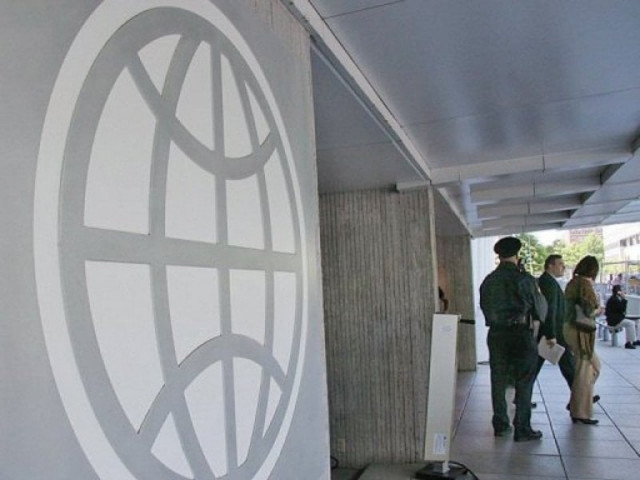Economic prospects for 2016
In its latest report, Global Economic Prospects 2016, the World Bank has warned of threats to developing economies

PHOTO: AFP
But there are also words of caution, with the influential report stating that the gains of fiscal consolidation — achieved due to a variety of reasons — “may be lost if spending ramps up during the pre-election period”. This is very likely to happen as governments tend to speed up spending towards the end of their five-year term. The report also added that sovereign guarantees associated with the CPEC could pose additional fiscal risks over the medium term.

Economists, as well as the central bank governor, have already highlighted concerns over the financial components of the CPEC, urging the government to come out with solid numbers that would clarify the country’s debt position after the project. No one denies that Pakistan’s public debt has ballooned in recent times and one of the ways to arrest its growth is through meaningful foreign investments — not just through the CPEC — and increase exports. While the increasing-exports-road may be a longer one and the situation is not helped by a global economic slowdown, improving the domestic business climate by easing tedious regulations and implementing long-term, meaningful policies could be a medium-term solution. Why is it that the government insists on the private sector following a regulatory process that ends up making it harder for businesses to conduct their operations? Why isn’t the private sector facilitated instead of hampered at every stage? Emphasising the importance of investment-friendly policies might sound cliched, but given the current state of affairs, it is time the government started paying heed to this advice.
Published in The Express Tribune, January 11th, 2016.
Like Opinion & Editorial on Facebook, follow @ETOpEd on Twitter to receive all updates on all our daily pieces.















COMMENTS
Comments are moderated and generally will be posted if they are on-topic and not abusive.
For more information, please see our Comments FAQ